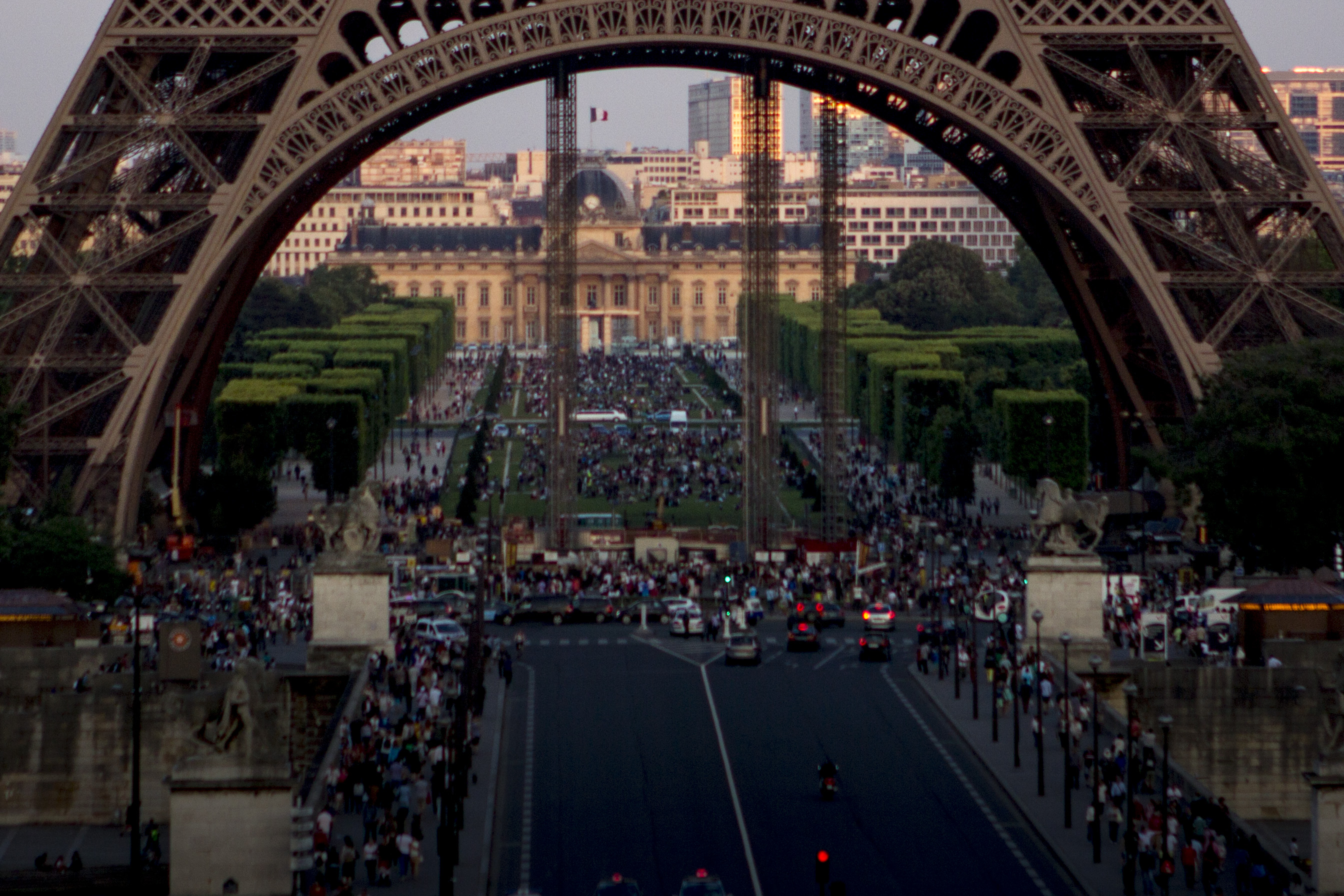Monuments exist, perhaps, to enable modern day pilgrims. Their attempts to live – to make real – the dreams of books and films and images. There’s a power to that. To the smiles and emotional work of a thousand people beneath a giant iron colossus made real. Arrived, in a sense, at the end of journeys planned, saved for, and with varying difficulty realised.
Much is lost when we reduce that experience, multiplied thousandfold, to ‘seeing’ a ‘sight’.
Nobody here is sightseeing. Some are trying to conquer it with their cameras and their smartphones. Others – perhaps more gracefully – have simply come to live out a prized symbolic moment. With roses and wine in the park, or quietly holding hands and strolling in the chill, leaf-scented air.
It seems right to think of France through contradictory symbols. As multiple, and personal, ways of seeing and making the world. It was France, after all, that gave the world Foucault. Like a first encounter with marxism, or feminism, or Fanon (whose anger France so rightly earned, and whose sons he would help kill in Algeria), Foucault is one of those pivotal moments in learning that you encounter in life. He would have appreciated starting with the idea of France-as-idea.
Symbols are, in a sense, a landscape. And just as travel might bring you to a place like the Eiffel tower, the symbols – once changed, altered, made into instruments – will make those places mean differently. From both spaces and ideas there’s never a return. You never go home, not really. And the world is never the same after your language changes.
There’s before Fanon, and after. Before Foucault, and after. Before Marx, and after. And so it goes. Sure you’ll leave Paris, or Marx, or Fanon’s colonised mind. But everything after can only be seen through those memories. Home is no longer simply what it is, because it’s now also not Paris. Paris is not the dark, atavistic night time of Khao San road. And so it goes on. Just as experiences accrete, so language grows. Nowhere is everywhere anymore.
I can’t speak as I did once. The old language is too small. Too limiting in its ideas. Has no sympathy to how I’d like to jam it with new words. Languaged politics that exist to be disruptive by design. In a physical sense, it’s become normal to be at home everywhere, to some degree, but also always a little in the places I’ve been before. To inhabit language too, is now always to also be speaking elsewhere – to the never-ending, transcendant conversations that we’re always having beyond this one, whether or not we can always read them.
It’s why I’ve been stuck for writing so thoroughly and for so long. Because I can’t write now as easily as I wrote then. Sure, I can use the words, but I want to be in too many stories with one single text.
Too many thoughts breeds incoherence. Though perhaps of a beautiful kind that itself says something new. So much overlaid that reducing things to a single takeaway would be dishonest, were it even possible. The Paris of Foucault’s complexity. The Paris of Fanon’s anger. The Paris of the world-stopping air between the intertwined hands of lovers.
So much that’s irreconcilable. Place is symbol is history is changing in my head with each new moment. We never really return to before. And if we’re honest, I’m not sure we ever reconcile all of the places we’re made of in the end.

